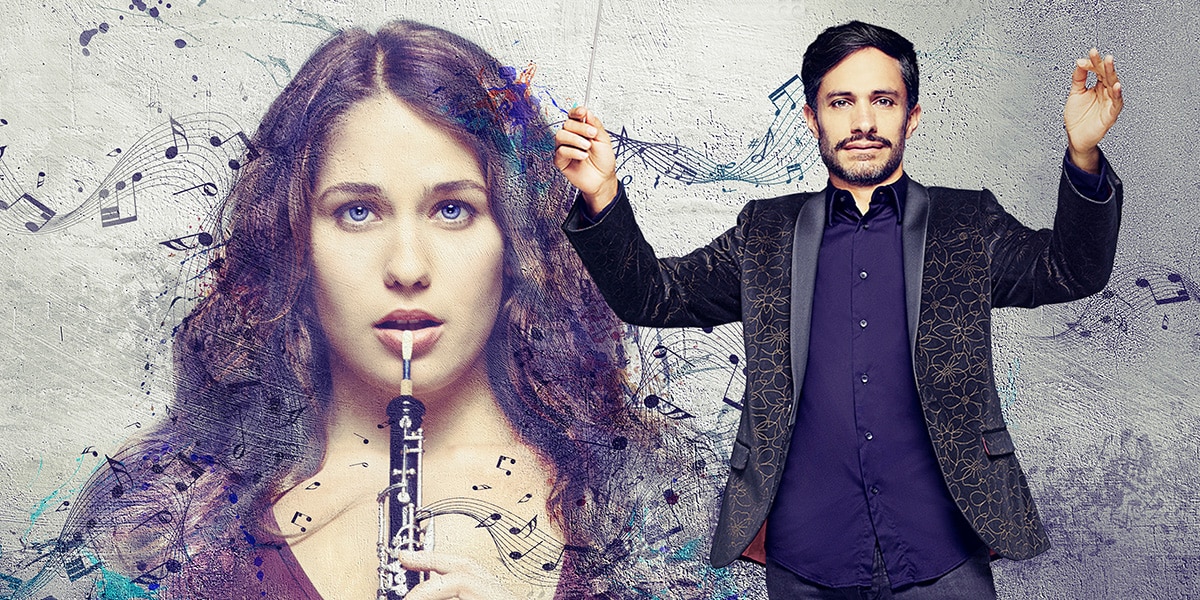Tuesday, February 6 marks a decade since Amazon Prime premiered the first episode of the irresistible musical comedy Mozart in the Jungle. At the time, few could have imagined that the show would become one of the streaming service’s most beloved and iconic television series.
Mozart in the Jungle follows the personal and professional adventures of a handful of classical musicians in contemporary New York City. Much of the story centers on the struggles of Hailey Rutledge (Lola Kirke), a gifted oboist trying to carve out a professional career. She’s just beginning to work with the orchestra when Rodrigo De Souza (Gael García Bernal) becomes the institution’s new and unusual “maestro.” The Latin conductor’s arrival is a major shock to the institution, the orchestral family, and the city’s cultural scene.
Co-written by Jason Schwartzman and Roman Coppola, Mozart in the Jungle ran from 2014 to 2018. The series received many positive reviews and won prestigious awards, including Golden Globes (Best Television Series and Best Actor for Gael García Bernal), and Primetime Emmys (Outstanding Sound Mixing for a Comedy or Drama Series).
On the tenth anniversary of its premiere, let’s explore the impact and formation of this intoxicating musical comedy. Looking back, it’s pretty clear that the legacy of Mozart in the Jungle is still alive and kicking.
The series is based on the book Mozart in the Jungle: Sex, Drugs, and Classical Music by Blair Tindall
As is often the case, first came the book. Mozart in the Jungle is loosely inspired by Blair Tindall’s nonfiction text, published in 2005. In it, Tindall, a professional oboe player for over twenty years, demystifies the world of classical music and exposes the vices and corruption of the orchestral scene.
In her memoir, Tindall does not hold back and delves into the stark and dark realities of professional symphonies, trying to stay afloat in the 1980s and 1990s. Clearly, classical music has always been a business, but the pages of the book denounce serious systemic failures in working conditions, wage inequalities, and union negotiations. In the most explicit passages, the story details the distressing daily life of the freelance instrumentalist who, among other things, exchanges sexual favors to obtain better musical assignments.
Amazon’s series puts a more hopeful spin on the source material. In its audiovisual format, Mozart in the Jungle depicts orchestral musicians in a light, sexy, and vibrant way. The fiction is a love letter to classical music and strives to reflect it as a universal source of upliftment, beauty, and joy.
Although Mozart in the Jungle started from Tindall’s memoirs, it became something special in its own right.
The character Rodrigo De Souza, played by Gael Garcia Bernal, is inspired by Venezuelan conductor Gustavo Dudamel
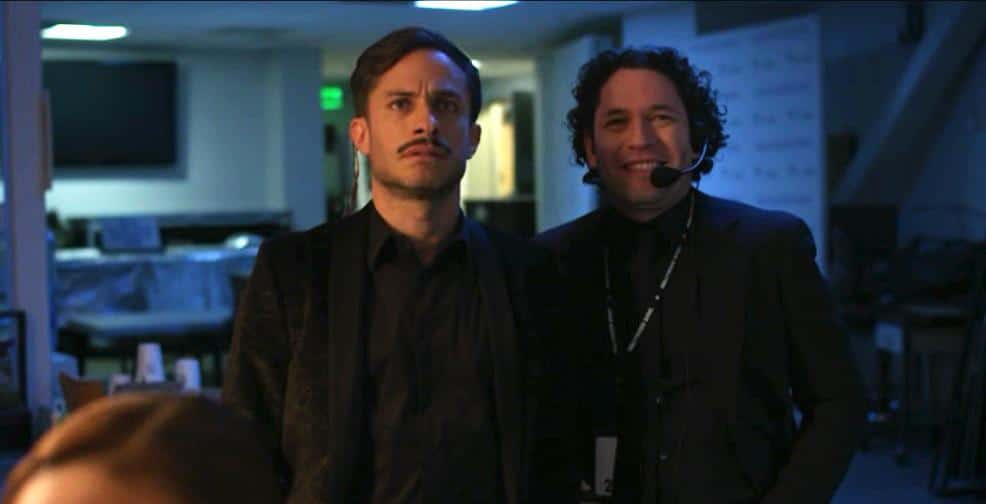
Actor and co-creator of the series Jason Schwartzman has admitted on several occasions that Rodrigo De Souza, the superstar “maestro” of Mozart in the Jungle, was loosely inspired by Venezuelan Gustavo Dudamel, who after a long tenure as the music and artistic director of the Los Angeles Philharmonic is heading to New York in a life-imitating-art turn. Anyone who has seen Dudamel’s wild energy when conducting can easily understand why.
Like Gustavo Dudamel, Rodrigo De Sousa’s character is a rare genius who cajoles, persuades, shakes, and motivates classical musicians to do their best. As such, Gael García Bernal’s performance was influenced by Dudamel’s unconventional methods, highlighting his fresh, innovative spirit and overflowing emotionality.
Bernal, who has also starred in La Mala Educación and Cassandro, stated that “Rodrigo wouldn’t exist without Gustavo” and his vigorous musicality.
Gustavo Dudamel, Venezuela’s child prodigy, burst onto the international scene at the age of 24 and has since become one of the world’s top conductors. The Washington Post has called him a “scarily talented young conductor who has been thrust into the position of acting as music’s savior,” and Sir Simon Rattle has described him as “the most astonishingly gifted conductor I have ever come across.” As can be seen, the similarities are striking.
Mozart in the Jungle became a platform for contemporary composers
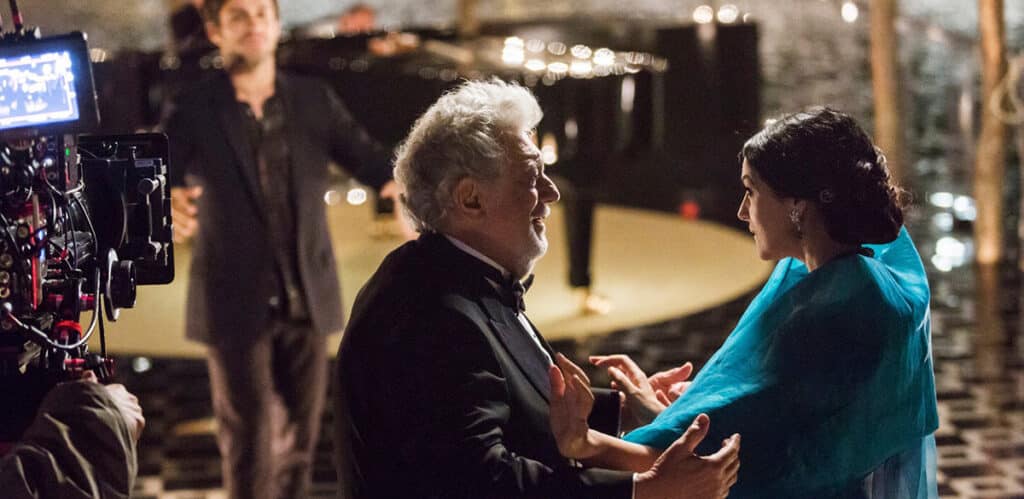
From its inception, Mozart in the Jungle was an explosion of good energy and classical music. While it is true that the soundtrack includes mostly legendary pieces by Mozart, Beethoven, and Tchaikovsky, Mozart in the Jungle also promotes contemporary composers, such as the tremendously inventive Caroline Shaw (Hi), Missy Mazzoli (Impromptu), Nico Muhly (Amy Fisher Aria), Paola Prestini (Listen, Quiet), Laura Karpman, just to name a few.
No one may have expected it, but Amazon’s charming comedy would go on to become a powerful musical platform – for making classics relevant, as well as showcasing new talent on the scene.
Another fascinating and widely appreciated aspect of the show was the cameos of classical music stars. The show is replete with special appearances, from tenor Plácido Domingo to music director Gustavo Dudamel to daring violinist Joshua Bell to concert pianist Lang Lang. The show was always deeply concerned with making music the central focus and driving force of the story.
Mozart in the Jungle may have been a lighthearted series, but its creators took the musical repertoire quite seriously, proving the classical music scene still has a strong pulse.
The Coppola family undertook the television project
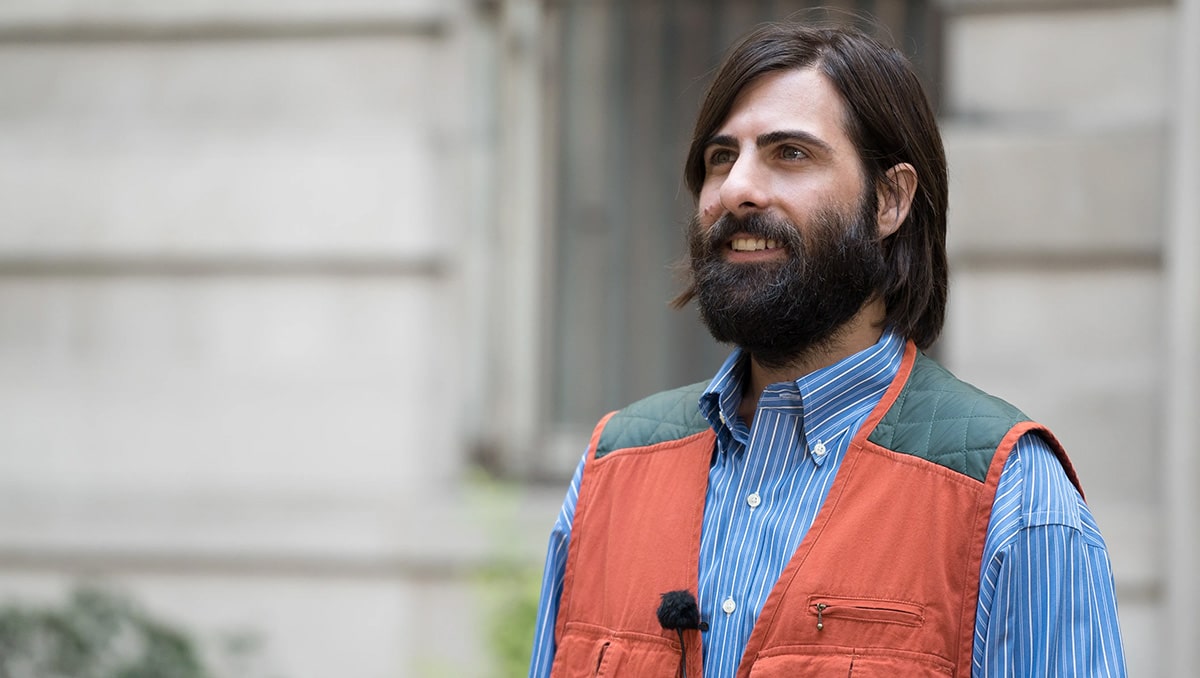
The series, given to exploring classical music as a wild and competitive underworld, was largely developed by the Coppola family. Specifically, it was Jason Schwartzman, Francis Ford Coppola’s nephew, who discovered the book Mozart in the Jungle: Sex, Drugs and Classical Music, and contacted author Blair Tindall.
Almost ten years passed before Schwartzman was able to get the project off the ground. Any series about classical music faces significant hurdles, thanks to audience skepticism towards symphonic culture. According to Schwartzman, the idea of Mozart in the Jungle gained new strength when his cousin, filmmaker Roman Coppola, gave him a boost by deciding to partner on the project.
The quirky four-season comedy was eventually created and produced by an unlikely creative quartet, consisting of theatrical director Paul Weitz and Broadway veteran Alex Timbers joining Schwartzman and Coppola.
Good things never go out of style
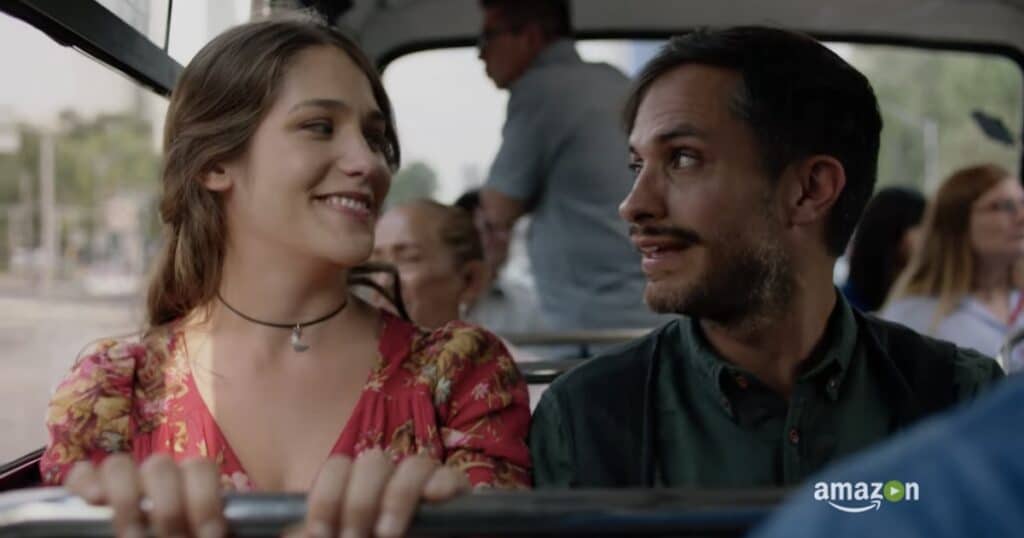
Ten years after its release, the dysfunctional musical family of Mozart in the Jungle still holds a special place in our hearts. Perhaps because of its provocative themes, relentless optimism, or powerful musical sensations, Mozart in the Jungle never fails to be an addictive and heartwarming feast. Perhaps celebrate by giving it a watch or a re-watch depending on your familiarity with the ten-year-old show. You’ll be conducting Mozart in the shower in no time.
